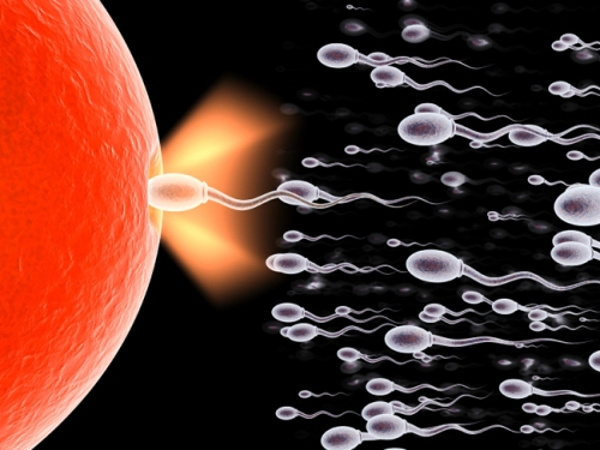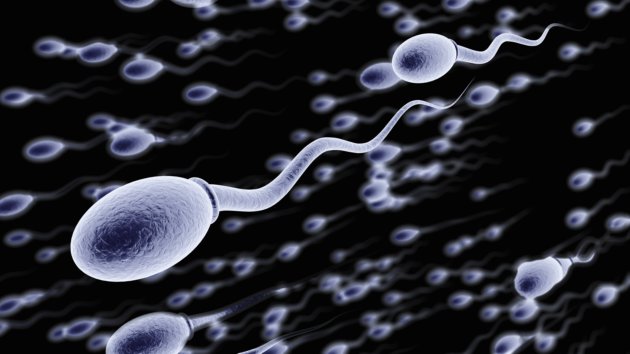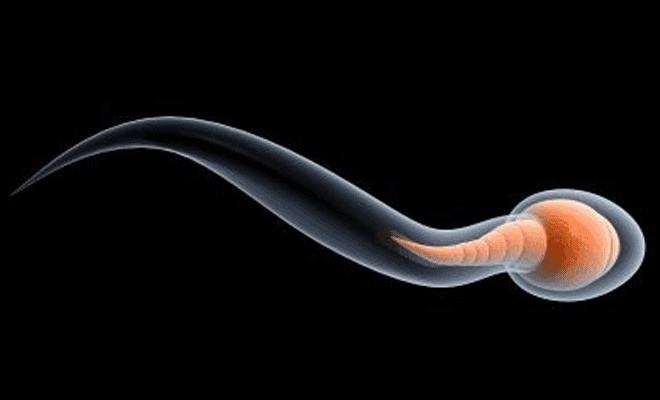The process of sperm formation and the 5 facts startle you
It takes 10-12 weeks for mature sperm, a testicle to produce about 50-150 million sperm per day, but only once a fever of over 38.5 degrees C can cause low sperm count, weak quality in 6 months.
- The dramatic swimming competition of 300 million sperm comes to see eggs under a humorous perspective
- Find a mathematical formula that determines how a male sperm swimming
1. Sperm requires 10-12 weeks to mature
Sperm under a microscope
The total time for sperm to form from protozoan (stored in the spermatogenesis) to the stage of complete maturation and preparation for ejaculation is about 10-12 weeks.
First, sperm is produced at the spermatogenesis in the testicle. Then the sperm enters the epididymis. Here sperm undergoes the final stage of maturation before ejaculation. This process from the protozoan to the sperm needs about 70 days. Finally, sperm must undergo a final period of about 12-21 days in the epididymis to mature completely functionally.
2. What happens when there is no ejaculation?

If sperm is not released, they will die, degenerate and be absorbed by the epithelium of the epididymis.
If ejaculated, the sperm will follow the vas deferens, then be mixed with the fluid of the prostate, seminal vesicles, and urethral gland and eventually follow the urethra to expel it.
3. A testicle produces 50 - 150 million sperms per day

Every day a testicle can produce up to several hundred million sperms. This process is continuous throughout the life of men, starting from the time of puberty and usually beginning to decline around 40-45 years.
Although the process of spermatogenesis is very effective and efficient, fertilization is not effective. In hundreds of millions of sperm entering the female reproductive tract, only one sperm actually fertilizes the ovary.
4. Fever above 38.5 degrees C can inhibit spermatogenesis in 6 months

Fever over 38.5 degrees C can inhibit spermatogenesis in 6 months. The process of spermatogenesis still takes place but has a small quantity and low quality. In addition, high temperatures can damage sperm sperm, causing a high rate of malformed sperm.
According to one study, people who work in long-distance chauffeur jobs may suffer from prolonged sitting and working conditions, leading to an increase in scrotal temperature leading to decreased spermatogenesis and infertility. People who work in hot environments of other professions such as chefs, welders, metallurgists, masons . have reduced sperm quality.
5. Diet affects the number of sperms
Lack of diet like vitamin E, vitamin A, some fatty acids, amino acids and zinc can directly affect the testes and reduce spermatogenesis. Lack of vitamin B directly affects the pituitary and indirectly on the testicles, which affects spermatogenesis.
The sperm process meets eggs under a humorous perspective.
You should read it
- ★ For the healthiest sperm, men go to sleep at this 'golden time'
- ★ Sperm and eggs will not be able to meet if this compound is encountered
- ★ Curious: 'What' difficulties do sperm have to undergo and how long does it take to meet the egg 'sister'?
- ★ Sperm also has a 'switch' that helps to turn on and off
- ★ This woman found a way to control sperm by the brain, creating works of art